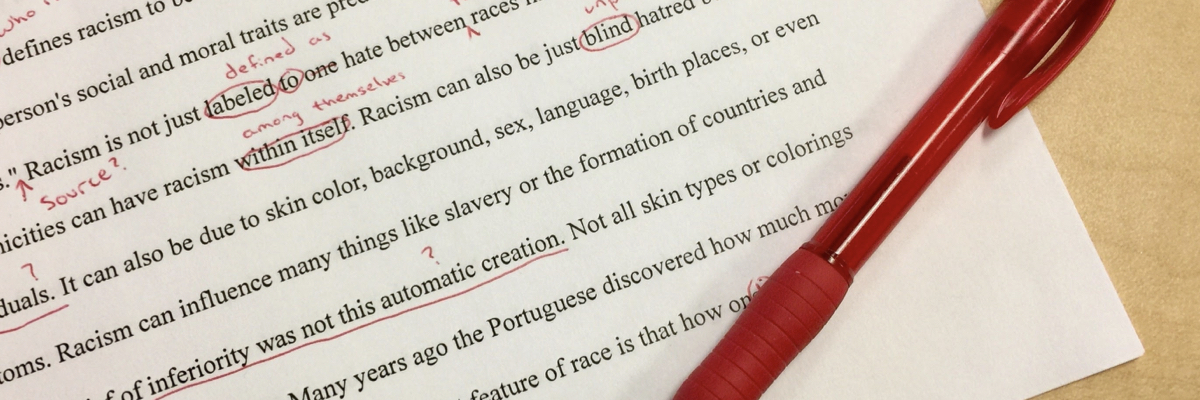From fourteen eminent men and women of letters, courtesy of the Guardian of London, come 247 rules for writing fiction.
My favorites:
Be prepared
From Geoff Dyer, a mind game, namely, tricking yourself into a good choice:
 Have more than one idea on the go at any one time. If it’s a choice between writing a book and doing nothing I will always choose the latter. It’s only if I have an idea for two books that I choose one rather than the other. I always have to feel that I’m bunking off from something.
Have more than one idea on the go at any one time. If it’s a choice between writing a book and doing nothing I will always choose the latter. It’s only if I have an idea for two books that I choose one rather than the other. I always have to feel that I’m bunking off from something.
From Hilary Mantel, a suggestion for a how-to book:
Read Becoming a Writer, by Dorothea Brande. Then do what it says, including the tasks you think are impossible. You will particularly hate the advice to write first thing in the morning, but if you can manage it, it might well be the best thing you ever do for yourself. This book is about becoming a writer from the inside out. Many later advice manuals derive from it. You don’t really need any others, though if you want to boost your confidence, “how to” books seldom do any harm. You can kick-start a whole book with some little writing exercise.
From Will Self, an alert to be always alert:
Always carry a notebook. And I mean always. The short-term memory only retains information for three minutes; unless it is committed to paper you can lose an idea for ever.
From Rose Tremain, a word to the wise to forget the most common piece of advice:
Forget the boring old dictum “write about what you know”. Instead, seek out an unknown yet knowable area of experience that’s going to enhance your understanding of the world and write about that.
From Michael Morpurgo, the command to get out of the garrett once in a while:
The prerequisite for me is to keep my well of ideas full. This means living as full and varied a life as possible, to have my antennae out all the time.
From P.D. James, a word to the wise about words:
Increase your word power. Words are the raw material of our craft. The greater your vocabulary the more effective your writing. We who write in English are fortunate to have the richest and most versatile language in the world. Respect it.
Getting to work
From Neil Gaiman, encouragement to just do it:
Write.
Put one word after another. Find the right word, put it down.
Finish what you’re writing. Whatever you have to do to finish it, finish it.
Put it aside. Read it pretending you’ve never read it before. Show it to friends whose opinion you respect and who like the kind of thing that this is.
From Roddy Doyle, exhortations not to beat yourself up — and, in fact, to give yourself some illusion of mastery and progress:
Do be kind to yourself. Fill pages as quickly as possible; double space, or write on every second line. Regard every new page as a small triumph.
Until you get to Page 50. Then calm down, and start worrying about the quality. Do feel anxiety – it’s the job.
Building stories
From Anne Enright, this pearl about perspective and POV:
Description is hard. Remember that all description is an opinion about the world. Find a place to stand.
And focus on the point of (almost) all writing:
Concentrate your narrative energy on the point of change. This is especially important for historical fiction. When your character is new to a place, or things alter around them, that’s the point to step back and fill in the details of their world. People don’t notice their everyday surroundings and daily routine, so when writers describe them it can sound as if they’re trying too hard to instruct the reader.
From Andrew Motion, a mind game:
Lock different characters/elements in a room and tell them to get on.
From Sarah Waters, this sobering advice to cut, cut, cut:
Cut like crazy. Less is more. I’ve often read manuscripts – including my own – where I’ve got to the beginning of, say, chapter two and have thought: “This is where the novel should actually start.” A huge amount of information about character and backstory can be conveyed through small detail. The emotional attachment you feel to a scene or a chapter will fade as you move on to other stories. Be business-like about it.
Style
From Elmore Leonard, two rules against describing:
Avoid detailed descriptions of characters, which Steinbeck covered. In Ernest Hemingway’s “Hills Like White Elephants”, what do the “Ameri can and the girl with him” look like? “She had taken off her hat and put it on the table.” That’s the only reference to a physical description in the story.
Don’t go into great detail describing places and things, unless you’re Margaret Atwood and can paint scenes with language. You don’t want descriptions that bring the action, the flow of the story, to a standstill.
From Jonathan Frantzen, sobering words about the value of words in the Information Age:
When information becomes free and universally accessible, voluminous research for a novel is devalued along with it.
From Esther Freud, something impossible:
Cut out the metaphors and similes. In my first book I promised myself I wouldn’t use any and I slipped up during a sunset in chapter 11. I still blush when I come across it.Getting help
One more . . .
From Geoff Dyer, an admonition to embrace the labor-saving possibilities of technology:
If you use a computer, constantly refine and expand your autocorrect settings. The only reason I stay loyal to my piece-of-shit computer is that I have invested so much ingenuity into building one of the great autocorrect files in literary history. Perfectly formed and spelt words emerge from a few brief keystrokes: “Niet” becomes “Nietzsche”, “phoy” becomes “photography” and so on. Genius!
Before you go . . .
• Like this content? For more posts on writing, visit the Elements of Writing Blog. Check out the posts on Storytelling, Writing Mechanics, Analysis, and Writers on Writing.
• For a monthly newsletter, chock full of hacks, interviews, and writing opportunities, sign up here.
• To transform writing in your organization, with in-person or online seminars, email us here for a free consultation.

